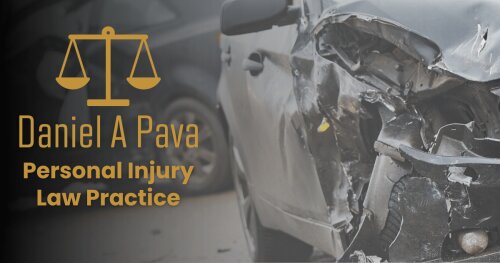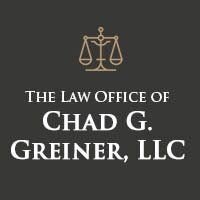Best Defamation Lawyers in Georgia
Share your needs with us, get contacted by law firms.
Free. Takes 2 min.
Or refine your search by selecting a city:
List of the best lawyers in Georgia, United States
About Defamation Law in Georgia, United States
Defamation in Georgia refers to a false statement made about an individual or business that damages their reputation. Defamation can occur through written words (libel) or spoken words (slander). Georgia law provides specific definitions and legal remedies for people harmed by defamatory statements. Whether said aloud, published in print, or shared online, defamatory remarks can cause lasting harm. Understanding how Georgia handles these cases is important if you believe you have been defamed or are accused of defamation.
Why You May Need a Lawyer
Several situations may require the help of a legal professional in the field of defamation. If someone has made false statements about you that have damaged your reputation or career, you may want to seek compensation or require them to retract the statement. Businesses harmed by false reviews or media coverage might need help restoring their reputation or stopping ongoing damages. Conversely, if you are accused of making defamatory statements, a lawyer can help defend your rights and clarify whether the statement is protected under free speech or other exceptions in Georgia law. Legal advice is also crucial if you receive a demand letter threatening a lawsuit or need guidance on the evidence required in these cases.
Local Laws Overview
Georgia law distinguishes between libel (written defamation) and slander (spoken defamation). Under Georgia Code Title 51, Chapter 5, a plaintiff must generally prove that the statement was false, communicated to someone other than the subject, and resulted in harm. Georgia recognizes some statements as "defamation per se," meaning damages are presumed, such as accusing someone of a crime, having a contagious disease, or professional improprieties. Truth is a complete defense under Georgia law. Opinion that cannot be proven true or false usually does not qualify as defamation. Georgia also sets a short statute of limitations for defamation lawsuits, typically one year from when the statement was made or published.
Frequently Asked Questions
What is the difference between libel and slander in Georgia?
Libel refers to defamation in a fixed medium, such as print or online writing, while slander involves spoken statements. Both are covered under Georgia law but may involve different rules for proving harm.
Can I sue for defamation if someone posted something false about me online?
Yes, you may be able to sue for defamation if a false and damaging statement about you is posted online. The same principles of defamation apply to online content in Georgia.
What do I have to prove to win a defamation case in Georgia?
Generally, you must show that a false statement was made about you, communicated to someone else, and caused damage to your reputation. In some cases, you must also show that the person acted with negligence or actual malice, especially if you are a public figure.
Is there a time limit to file a defamation lawsuit in Georgia?
Yes, the statute of limitations for filing a defamation lawsuit in Georgia is typically one year from the date the statement was made or published.
Are opinions protected from defamation claims?
Yes, pure opinions that cannot be proven true or false are generally protected and are not considered defamation under Georgia law.
Can I get damages for emotional distress caused by defamation?
In some cases, if you can prove actual harm including emotional distress resulting from the defamatory statement, you may be eligible to recover damages for those losses as part of your lawsuit.
What is "defamation per se" in Georgia?
Defamation per se refers to statements that are so inherently harmful that damages are presumed, such as false accusations of a crime or statements harming a person's business or professional reputation.
How does Georgia law treat public figures in defamation cases?
Public figures and officials must meet a higher standard and prove "actual malice," meaning the defamatory statement was made knowingly false or with reckless disregard for the truth.
What defenses are available in a defamation lawsuit?
Common defenses include proving the statement is true, was an opinion, or is otherwise privileged (such as made during certain governmental proceedings). These defenses may prevent liability in a defamation case.
What should I do if I receive a cease-and-desist letter over alleged defamation?
Consider consulting with a qualified Georgia attorney before responding. A lawyer can evaluate your situation, advise you on your rights and obligations, and help you avoid unintentional legal exposure.
Additional Resources
For those seeking more information about defamation law in Georgia, the following resources may be helpful:
- State Bar of Georgia - Find legal help and educational materials.
- Georgia Legal Services Program - Offers guidance and resources for civil legal matters.
- Georgia Department of Law - Office of the Attorney General - General consumer protection and legal information.
- Local courthouse self-help centers - Guidance for individuals representing themselves in civil matters.
- Public libraries - Many maintain up-to-date legal reference materials about Georgia statutes.
Next Steps
If you are dealing with a possible defamation issue, consider taking the following steps:
- Gather all evidence, such as written statements, online posts, emails, or records of spoken remarks.
- Document the harm or damages you have suffered as a result of the statement, such as loss of business, damaged relationships, or emotional distress.
- Do not contact the person who made the statement until you have consulted with a legal professional.
- Contact a qualified attorney experienced in Georgia defamation law to discuss the specifics of your case and learn about your legal options.
- Meet critical deadlines, such as the statute of limitations, to preserve your ability to pursue a claim.
Taking a proactive approach and seeking experienced legal counsel can help protect your reputation and legal rights when facing defamation-related challenges in Georgia.
Lawzana helps you find the best lawyers and law firms in Georgia through a curated and pre-screened list of qualified legal professionals. Our platform offers rankings and detailed profiles of attorneys and law firms, allowing you to compare based on practice areas, including Defamation, experience, and client feedback.
Each profile includes a description of the firm's areas of practice, client reviews, team members and partners, year of establishment, spoken languages, office locations, contact information, social media presence, and any published articles or resources. Most firms on our platform speak English and are experienced in both local and international legal matters.
Get a quote from top-rated law firms in Georgia, United States — quickly, securely, and without unnecessary hassle.
Disclaimer:
The information provided on this page is for general informational purposes only and does not constitute legal advice. While we strive to ensure the accuracy and relevance of the content, legal information may change over time, and interpretations of the law can vary. You should always consult with a qualified legal professional for advice specific to your situation.
We disclaim all liability for actions taken or not taken based on the content of this page. If you believe any information is incorrect or outdated, please contact us, and we will review and update it where appropriate.
Browse defamation law firms by city in Georgia
Refine your search by selecting a city.

















